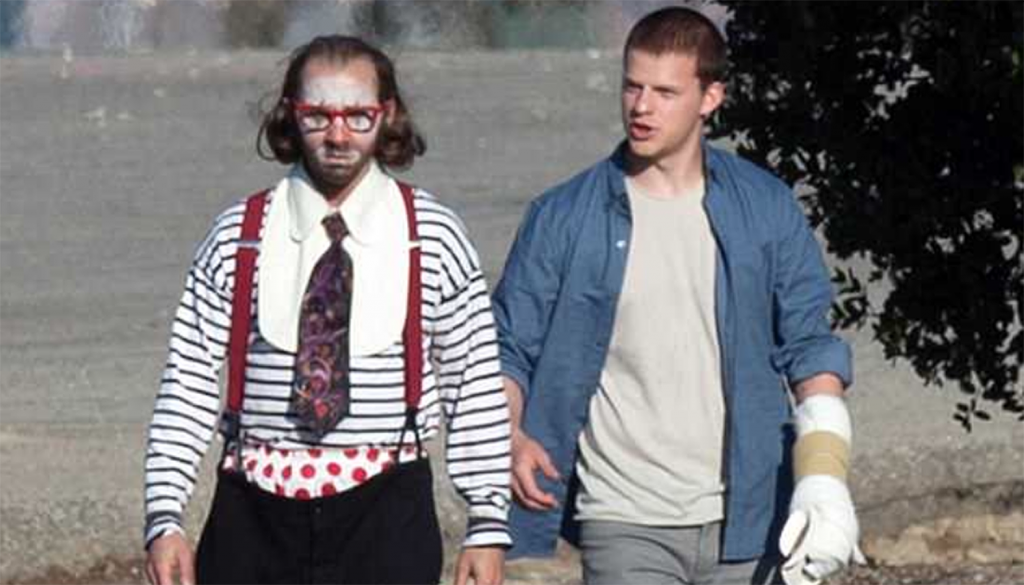The history of Hollywood is rife with the sad stories of child actors, exploited for their youthful charm and energy, then cast aside as they got older, many dying from alcohol or substance abuse. From Judy Garland to Corey Haim, with countless victims in between, the world has been shown that fame and fortune often do not bring happiness.
Shia LaBeouf seemed to be headed for a similar fate over the last few years, as the promising young actor — so popular and respected that Vanity Fair magazine pegged him as the next Tom Hanks — suddenly went off the rails into alcohol addiction. That led to a series of high-profile arrests for public intoxication, troubling behavior on red carpets, and a string of box-office bombs.
All might have seemed lost for him. But instead, LaBeouf has made an unlikely and touching rebound this year with not one, but two meaningful films that made waves at the Sundance Film Festival. They are both tales of redemption made all the more special when one realizes that they reflect the actor’s own personal real-life journey.
“The Peanut Butter Falcon” has gone on to be one of the year’s top independent films, but this weekend the actor made an even more daring and impressive return with the film “Honey Boy.” LaBeouf wrote the latter, which is closely based on his troubled childhood as an actor, pushed hard by his recovered-addict father. He also plays a character based on his dad in a remarkable display of onscreen catharsis that managed to bring peace between himself and his father for the first time in many years.
The film bounces between showing a young actor, Otis, played at age 12 in 1995 by Noah Jupe and at 22 in 2005 by Lucas Hedges. The young Otis lives in a cheap motel with his father James (LaBeouf), who has no means of income other than “managing” Otis’ career because of his past legal scrapes with both alcohol-fueled arrests and a long-ago arrest as a sex offender.
James’ constant pressure upon young Otis to succeed leaves him utterly miserable, a state of existence that results in the adult Otis caught up in out-of-control drunken behavior and arrests before a DUI crash lands him in court-ordered rehab. It’s there that Otis is forced to confront the pain of his childhood by a therapist who encourages him to write his thoughts about his life into a journal — a tactic used by LaBeouf’s real-life therapist in rehab, which led to the actor’s decision to write the “Honey Boy” screenplay.
“I was in this court-ordered mental institution in Connecticut; I would send my notes from court-ordered sessions and would send the director notes and she’d transcribe the audio,” said LaBeouf, while speaking Nov. 7 in a post-screening Q&A session at the Arclight Hollywood. “I needed some hope, a mustard seed to keep me going while on the sidelines and I sent her 30-40 pages and she said this could be something.
“My father would never sign off on me playing him. I could never be man enough in my father’s eyes,” he continued. “I didn’t think I could play him anymore, but then we decided to go for it and I told him Mel Gibson would play him when he had to sign off on it. Mel was the manliest man I could think of.”
Of course, LaBeouf took the role on himself, and he could have easily abused the situation to simply get revenge by making his father look bad throughout. But as the audience slowly sees the pain that James has been through in his own life, and that he’s simply repeating the cycle of abuse he suffered himself as a child, LaBeouf shows a remarkable empathy and forgiveness toward his father that has also led to a rekindled relationship in their real lives.
“Honey Boy” features plenty of foul language, and has troubling emotional and brief physical abuse of young Otis, but otherwise steers clear of morally questionable content.
One other factor played an even bigger part than the court system in LaBeouf’s redemption: the close bond he had formed with Zack Gottsagen while making “Falcon.” LaBeouf’s final arrest amid a particularly bad drunken bender occurred midway through its filming, and Gottsagen pleaded with him to stop hurting himself and those he loved. LaBeouf quit drinking cold turkey and has maintained his sobriety for over two years since.
“Zack can’t not shoot straight,” LaBeouf told Esquire magazine in a March 2018 profile. “And bless him for it, ’cause in that moment, I needed a straight shooter who I couldn’t argue with.”
That special bond between the mentally challenged Gottsagen and LaBeouf in “The Peanut Butter Falcon” will soon be available to see on streaming services and DVD. For those wishing to see LaBeouf’s return in full blossom, “Honey Boy” is currently at the Arclight Hollywood and the Landmark theater and will expand further in the coming weeks.

